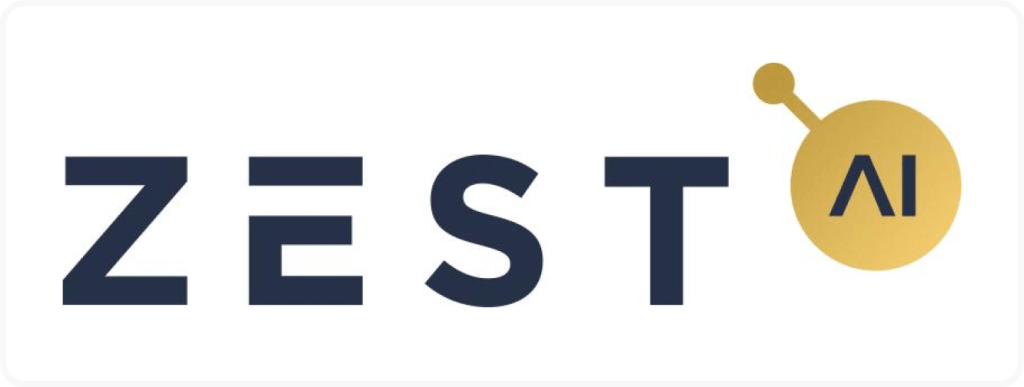

Artificial intelligence in fintech: Top advantages and use cases
Artificial intelligence is becoming more indispensable across industries and business sectors by the day. Smart tech excels at handling tasks that go beyond human competencies. Thus, AI has quickly turned into an especially important moving part in the field of finance and related technologies — FinTech.
This article dives into the present state of things of AI in FinTech to show you what and how exactly today’s market players implement in terms of finance-related smart tech.
That being said, each section of this article contains a real-world example, use case, or any other reference to the actual implementation of this or that AI solution being mentioned. Let’s take a look.
Need to develop or update a fintech solution?
Check out our fintech software development services.
Common use cases of artificial intelligence in fintech with examples
AI — AI is everywhere these days. But it’s the financial sector where smart technology finds an application to the best of its ability: intense streams of data, high bars of data protection & personalized security, and no room for workflow downtime are some of the generalized main reasons why we need smart automation in finance.
For more particular applications, AI in fintech is used for:
- Automating tasks and optimizing routines. Implementing chatbots, access systems, and other instances of AI in fintech, you get to free up live specialists’ burden by automating processes from data entry and content management to payment processing and customer service support.
- Making pre-analyzed business and tech decisions. A custom-tailored AI can dig through and analyze vast amounts of financial data, providing individually valuable insights that you can act upon. This is very relevant to the financial sector players, who need to make quick yet highly accurate decisions in order to capitalize on market opportunities or mitigate risks.
- Achieving and maintaining regulatory compliance. Achieving perfect compliance with all regulations can pose a major challenge. AI can autonomously monitor and report all financial transactions taking place within a system, helping to maintain regulatory requirements without the risk of human error.
- Shaping personalized financial services. AI also greatly assists in outlining unique user journeys and personalizing the experience accordingly based on data and behavior analytics. For instance, AI can provide tailored financial advice based on an individual’s spending habits, saving goals, and financial history, helping to boost customer satisfaction and retention.
In the finance industry specifically, each of the above tasks and associated features can be leveraged for different business/tech needs and managerial or service provision aspects, assisting different departments or crews or specialists.
Want to improve processes with AI?
Learn more about our AI consulting services.
Top 5 use cases of AI in fintech with examples
To narrow things down, here are some particular use cases of AI in fintech.
Credit scoring
Traditional credit scoring mechanisms mostly rely on credit history and income analysis, being very limited and failing to heed other existing data points. However, AI, equipped with Machine Learning-powered accuracy, can analyze a much broader range of customer data, including social media activity, online user behavior, and transaction history.
It can then automatically summarize reports and provide highly accurate credit scores, allowing more people to easily get better credit. This is especially useful for credit unions, venture capital brands, and asset management providers.

Zest AI is a big finance-focused smart platform that, in particular, leverages machine learning models to help users assess their credit risk statements online. Using Zest AI, lenders can evaluate potential borrowers who are having trouble with standard credit scoring methods, helping to expand their credit access possibilities.
Detecting and preventing fraud
Specialized AI algorithms can continuously monitor financial transactions to detect unusual patterns that indicate fraud. For instance, if a customer’s account suddenly shows large, frequent withdrawals from an unusual location, AI can flag the transaction for further investigation.

PayPal analyzes all the transaction data passing through the system with the help of custom AI algorithms tuned to detect fraudulent activities along the way. The platform’s customized AI system can process thousands of transactions per second, pinpointing potential fraud and cutting out the need for human intervention.
Providing personalized advice and CX
AI-driven virtual assistants and chatbots can be tuned to provide 24/7 customer support, handling common customer queries and transactions without human intervention. More than that, such solutions can be configured to learn from all or certain user interactions, expanding the knowledge base and learning to assist customers more effectively by the day.

Erica, Bank of America’s AI-powered virtual assistant, was among the first major AI implementations done by a global financial enterprise. Reportedly, it has assisted over forty-two million clients, responding to about 800 million queries related to tasks like checking balances, managing spending, and transferring funds. The AI’s growing ability to handle more random queries surely drives the bank’s customer satisfaction.
Powering algorithmic trading
AI-driven trading systems can be equipped to analyze market data in real time, predicting price movements and market shifts in order to then execute trades autonomously with precision. Surely, smart systems outplay human specialists and traders in terms of the speed of reaction to market changes, minimizing losses and optimizing profits in the long run via in-depth analytics.

A renowned hedge fund (known mostly for the famous, long-established Medallion Fund), Renaissance Technologies has decided to employ the AI/machine learning combination to automate high-frequency trades’ execution. The resulting custom AI systems are set to analyze vast amounts of data, extracting new profitable trading opportunities that human traders might miss.
Boosting compliance, AML, and risk assessment
AI helps financial institutions assess and manage risks by analyzing market trends, economic indicators, and customer behavior through the powers of predictive analytics. The AI-enabled predictive capability allows institutions to address potential risks proactively before they become significant issues.

JP Morgan uses an AI platform called COiN (Contract Intelligence) to analyze legal documents and identify potential risks. Since its initial implementation, the solution has cut down the average document review time from thousands of hours to mere seconds, prompting major cost savings for the huge brand.
AI technologies used in fintech
Our today’s topic of discussion is all about technology. There are a couple of essential artificial intelligence technologies that serve as pillars for implementing any of the above-mentioned capacities. Which are these?
Machine Learning
Machine learning can power adaptive learning systems, enabling fintech infrastructures to learn from incoming and stored data, and improve performance over time without necessarily being heavily programmed or re-programmed. This technology is specifically crucial for tasks like fraud detection, where the system must adapt to new and evolving threats.

LendingClub uses machine learning to assess the creditworthiness of borrowers. Their models analyze data from various sources to predict a borrower’s ability to repay loans, generating more accurate lending decisions.
Natural Language Processing (NLP)
NLP is what allows AI systems to understand and respond to human language. This can be used to make user support more natural and to-the-point, enabling your chatbot or another type of virtual assistant to engage in more unique conversations.

Klarna, a popular fintech company, uses an AI chatbot powered by NLP to assist customers with queries related to payments, refunds, and account management. The chatbot comprehends complex customer inquiries and provides personalized responses, boosting the quality of each instant of customer experience.
AI algorithms
AI algorithms process vast amounts of financial data in real time, providing insights that support decision-making in areas like trading, risk management, and fraud detection. Custom algorithms can be set up, trained, and optimized to handle custom data analysis or other routines.

BlackRock, one of the largest asset management firms out there, employs an AI platform called Aladdin (Asset, Liability, Debt, and Derivative Investment Network) to manage risk and analyze portfolio data. Aladdin’s AI algorithms help BlackRock make informed investment decisions by analyzing millions of data points.
Data analytics
AI-powered data analytics tools help financial institutions, agencies, and providers analyze customer behavior, market trends, and financial data, gaining more accurate predictions and better financial strategies. In-depth customer insights can easily serve as a foundation for major company or project improvements.

Square, a fintech company specializing in payment processing, leverages AI-driven data analytics to provide small businesses with insights into sales trends, customer behavior, and financial performance. Such insights can drive essential decisions and growth directions for businesses.
Benefits you get implementing AI for fintech
AI offers a wide range of benefits for the financial industry, helping financial companies improve their services, reduce costs, and stay competitive by smartening up operations and processes at all angles of their activity.
Operational efficiency
AI automates routine tasks such as transaction processing, data entry, and report generation, significantly reducing the time and effort required for these activities. It helps deliver services much faster, at much lower resulting expenses.
HSBC utilizes custom AI models to automate the process of transaction monitoring for anti-money laundering (AML) compliance. The AI system has reduced the time required to monitor transactions and generate reports by over 50%, bringing to the table substantial cost savings.
Improved accuracy and reliability
AI systems can detect errors and anomalies in financial transactions in real time, reducing the likelihood of costly mistakes and improving the reliability of financial services.

Wells Fargo uses AI to monitor transactions for errors and fraud. The AI system’s ability to detect and correct errors in real time has reduced the bank’s exposure to financial losses and improved customer trust.
Scalability
Powering ultimately efficient resource management, AI helps companies and projects to scale their financial operations in a smart way by optimizing resource allocation and managing increased customer loads without compromising service quality.

Robinhood, a fintech company offering commission-free trading, uses AI to manage its rapidly growing user base. The AI system optimizes server usage and manages trading requests, keeping the platform responsive even during periods of high demand and peak user load.
Personalization
AI enables financial institutions to offer personalized financial advice based on individual customer data, such as spending habits, financial goals, and risk tolerance. This fuels more relevant and effective financial services.

Wealthfront is a robo-advisor set to offer personalized investment advice. Its built-in AI system analyzes a customer’s financial situation and goals to create a tailored investment plan, guiding users in achieving their financial objectives.
Security and compliance
For advanced threat detection, AI-driven security systems continuously monitor financial transactions and customer accounts for suspicious activity, helping financial institutions detect and prevent fraud more effectively than traditional methods.

Citibank uses AI to enhance its fraud detection capabilities. The AI system monitors millions of transactions in real time, identifying and blocking fraudulent activity before it impacts customers.
Challenges of implementing artificial intelligence in fintech
Banks, investment agencies, payment and transaction infrastructures, financial institutions, and FinTech service providers of all sorts must deal with immense amounts of sensitive data while granting competitive user experiences.
Each type of startup, SMB, or enterprise finds unique ways to adopt AI in FinTech to boost its grip on financial management processes. But it must first overcome the following underlying challenges.
Data privacy and security
Financial institutions must ensure that their AI systems comply with data privacy regulations while still delivering innovative services. This requires robust data protection measures and a thorough understanding of regulatory requirements.
Example — GDPR compliance. The General Data Protection Regulation (GDPR) in the European Union imposes strict requirements on how customer data can be used. Financial institutions using AI in Europe fall under the GDPR requirements, which can be challenging to follow given the complexity of AI data processing.
Regulatory compliance
Doubling down on the topic of regulations, handling some of them can be quite confusing. The use of AI in fintech is subject to various regulations, which can vary by region and industry.
Example — Anti-Money Laundering (AML) compliance. Financial institutions using AI for AML compliance must ensure that their systems meet regulatory requirements. This includes the ability to explain AI decisions, which can be challenging given the complexity of some AI models.
Legacy system integration
Many financial institutions still rely on legacy systems that are not compatible with modern AI technologies. They may face various compatibility issues. Integrating AI into these systems can be complex and costly, requiring significant investment in technology upgrades.
Example — Deutsche Bank. Deutsche Bank has faced challenges integrating AI into its legacy systems. The bank has invested heavily in modernizing its IT infrastructure to achieve compatibility with artificial intelligence technologies, but the process has been time-consuming and expensive.
Cost of implementation
There can be a pretty high initial investment in place. Implementing AI solutions can be expensive, especially for smaller fintech companies. The cost of AI technology, along with the need for skilled personnel to manage and maintain AI systems, can be a significant barrier.
Example — small fintech startups. Many small fintech startups struggle to implement AI due to the high costs involved. However, some have found success by partnering with larger firms or using AI as a Service (AIaaS) platforms that reduce the need for in-house AI expertise.
Bias and fairness
AI systems can only be as good in their performance as the data you fed them during their training. If the training data is biased, the AI system may produce unfair or discriminatory outcomes, which can spawn regulatory and reputational risks.
Example — lending discrimination. Some AI-driven lending platforms have faced criticism for producing biased credit scores that unfairly disadvantage certain demographic groups. This is why maintaining fairness in AI decision-making calls for careful data management and ongoing monitoring.
Estimate project costs
Please share more details of your project with our team.

DICEUS expertise
DICEUS is a seasoned gathering of profiled specialists, technology experts, and experienced leads and managers that provide full coverage of fintech software development and support needs.
- Years of expertise. Excelling in the global IT arena since 2011, the DICEUS specialists have been accumulating tons of profiled expertise and experience through the years. We know how to find the best-fitting solutions, keep our workflows transparent, and keep you in tune with every tiny detail.
- Qualified staff. We offer diverse collaborative options, with a big pool of professionals ready to deliver services based on just the model you need, including outsourcing, outstaffing, and staff augmentation. No matter what type of specialists, team, or professional input you need, we have the brains and hands.
- Diverse expertise. We build custom FinTech apps (including payment apps, mobile banking apps, finance management solutions, blockchain solutions, etc.), design tailored payment processors from scratch, tailor lending tools, create personalized dashboards, and offer more innovative solutions for any purpose and niche.
- Quality guarantee. DICEUS is an established name in the fintech market, guaranteeing the quality of collaboration, execution, and delivery at every stage of your project. We have qualifications, certificates, official tech and brand partnerships, a rich portfolio, and satisfied client testaments to back it all up.
Induce your finances with smart financial technology — turn to the DICEUS team.
FAQ
What is the role of AI in the fintech industry?
AI plays a transformative role in fintech by automating financial processes, enhancing data-driven decision-making, improving customer experiences, and reducing operational costs. It helps fintech companies streamline operations, optimize services, and create personalized offerings.
How is AI used in fintech?
AI is used in fintech for fraud detection, risk assessment, customer service (chatbots), credit scoring, algorithmic trading, regulatory compliance (RegTech), and personalized financial advice. It enables faster, more accurate processes with fewer manual interventions.
What AI technologies are commonly used in fintech?
Common AI technologies in fintech include machine learning, natural language processing (NLP), predictive analytics, diverse data analysis, and more. These technologies can be used to support data analysis, decision automation, and customer interaction.
What are the benefits of artificial intelligence in the fintech industry?
AI offers numerous benefits, including enhanced accuracy in fraud detection, improved efficiency, cost savings, better customer experiences through personalization, faster transaction processing, and data-driven insights for improved decision-making. It also ensures regulatory compliance and mitigates risks.





